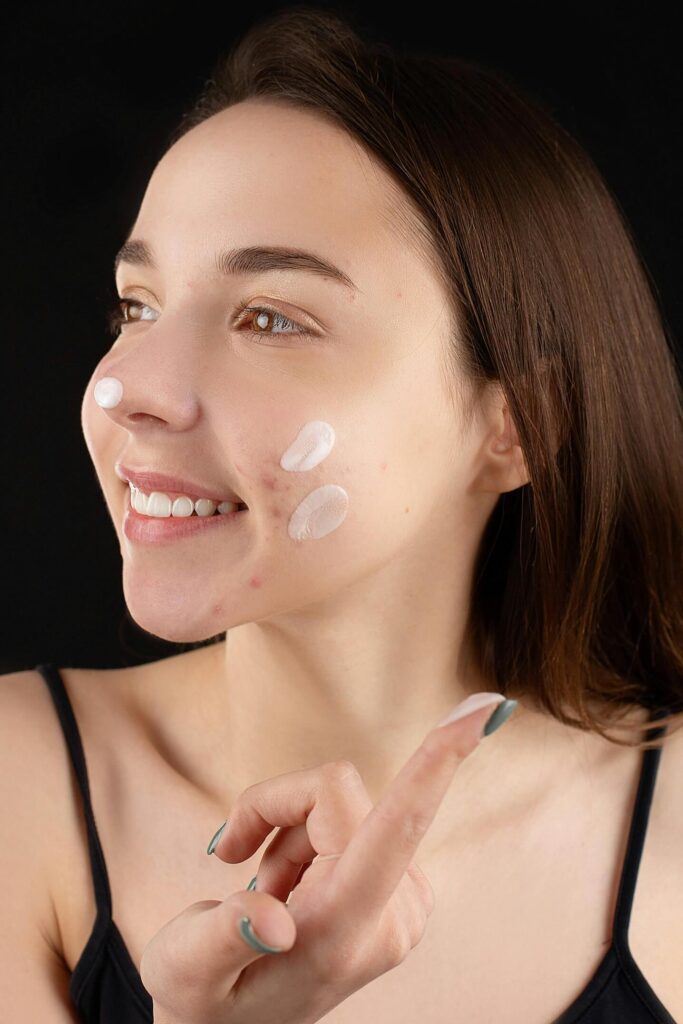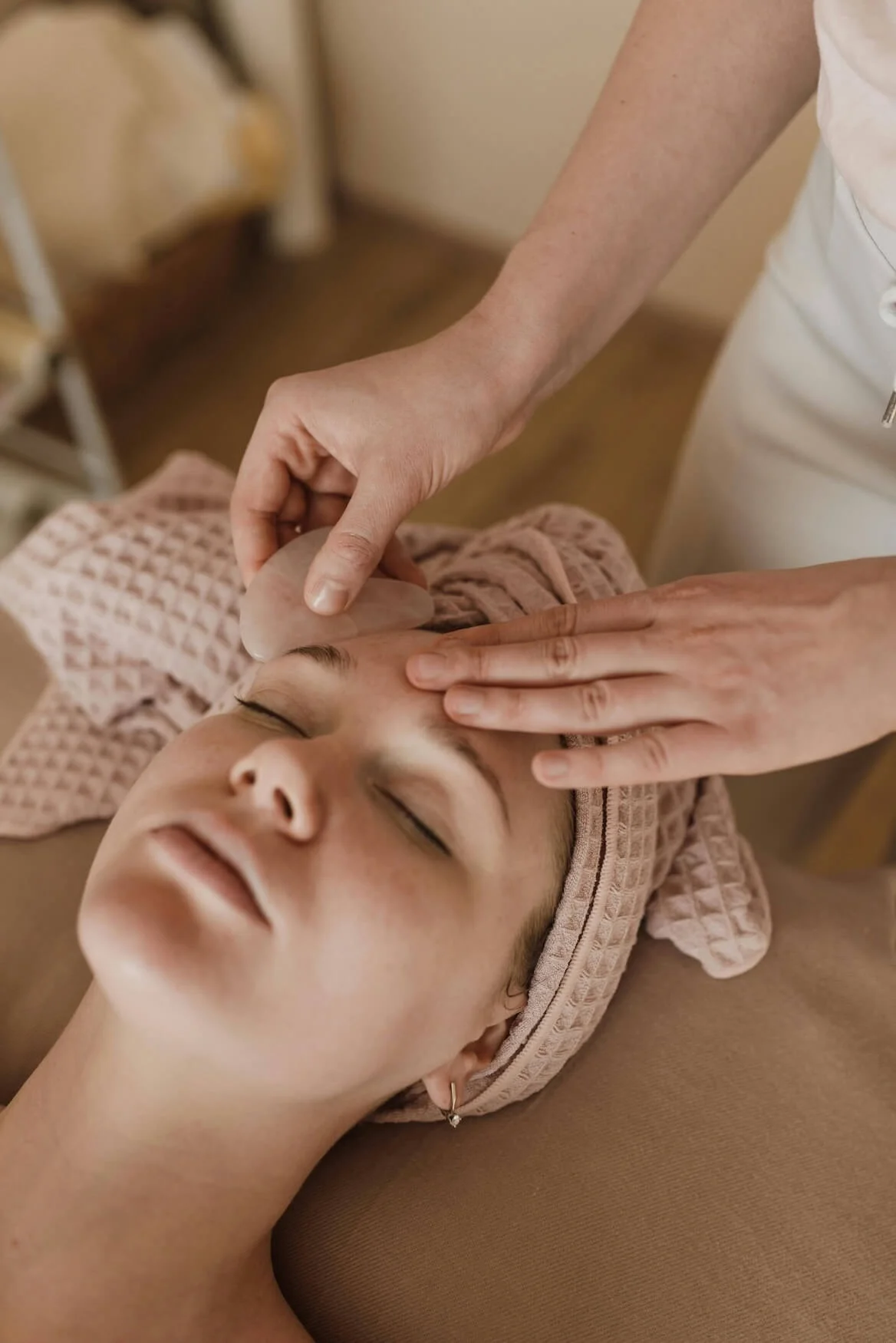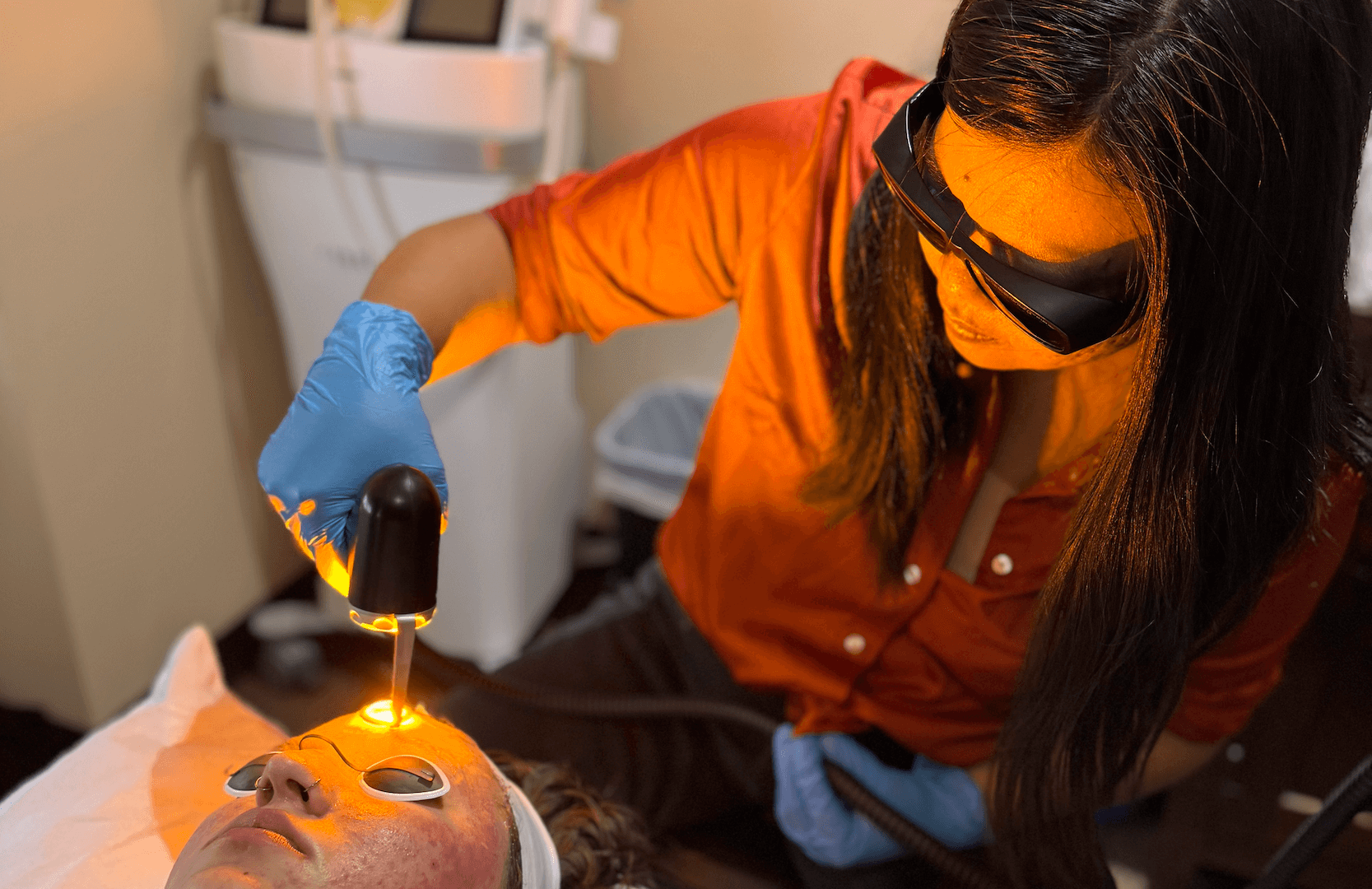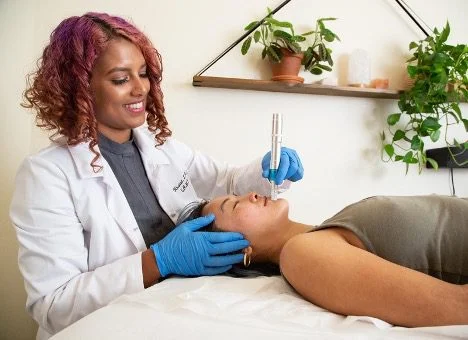An Integrative Approach to Acne in Seattle
Acne is a common skin condition that affects people of all ages. As an integrative medicine clinic, we focus on addressing the root causes of acne and adopting a holistic approach to promote overall well-being. This handout provides information on the causes, clinical presentations, related conditions, and integrative approach to acne through a natural and functional medicine dermatology lens.
How is Acne Formed?
The skin bacterium Propionibacterium acnes (P. acnes) plays a role in acne development. When hair follicles become clogged, P. acnes can multiply and cause inflammation, leading to the formation of acne lesions.
What are the Common Causes of Acne?
Sex Hormones: Hormonal changes, especially during puberty, menstrual cycles, pregnancy, and menopause, can stimulate the sebaceous (oil) glands in the skin, leading to increased oil production. Elevated androgen levels(male sex hormones)are often associated with acne.
Genetics: a family history of acne may increase the likelihood of developing acne
Blood sugar dysregulation: Elevated blood sugar levels can lead to increased insulin production. Insulin, in turn, stimulates the production of insulin-like growth factor-1 (IGF-1). Both insulin and IGF-1 may increase the production of skin oils (sebum) and promoting the growth of skin cells.High blood sugar levels can trigger inflammation in the body along with influencing hormonal balance, particularly in relation to insulin and androgens
Inflammation: Inflammatory processes in the body can contribute to the development and worsening of acne. Inflammation may be triggered by factors such as stress, diet, and environmental exposures.
Stress: chronic stress can lead to hormonal imbalances that may trigger or worsen acne. Stress-related hormones, such as cortisol, can stimulate oil production and contribute to inflammation.
Gut Dysbiosis: an imbalanced gut microbiome, known as dysbiosis, may contribute to the development or exacerbation of acne in some individuals. The gut-skin axis is the concept that the health of the gut and the skin are interconnected. Some examples of common causes of gut dysbiosis include candidaand h pylori. Akkermansia spp., if low, may contribute to increased intestinal permeability, also known as “leaky gut.” This may allow harmful substances to enter the bloodstream and trigger systemic inflammation.
Medications: Some medications, such as certain steroids, contraceptives, and anticonvulsants, may contribute to acne as a side effect.
What are Conditions Commonly Associated with Acne?
- Polycystic Ovarian Syndrome (PCOS)
- Hormonal Imbalances – such as adrenal or thyroid disorders
- Cushing’s Syndrome
- Hyperandrogenism
- Gastrointestinal Disorders
- Psychological Factors – stress, anxiety, depression
- Insulin resistance and metabolic syndrome
Can Acne be Cured?
The concept of “curing” acne can vary depending on individual factors, the severity of the condition, and the underlying causes. While complete and permanent eradication of acne may not be guaranteed for everyone, effective management and control are very achievable using an integrative approach to acne treatments.
What are Testing Options?
In most cases, there isn’t a specific test for acne itself because the diagnosis is typically made based on a clinical examination. However, you may consider additional tests to assess underlying factors that may contribute to acne.
Hormones: Estradiol, Estrogen, Progesterone, Testosterone free/total, DHT, DHEA-S, Sex Hormone Binding Globulin (SHBG), FSH, LH, Thyroid hormones
Blood Sugar: Fasting Glucose, Insulin, C Peptide, Hemoglobin A1C
Gut Microbiome Testing: Various bacterial overgrowth patterns in the GI tract can contribute to altered inflammation in the body, conditions such as small intestinal bacterial overgrowth (SIBO), IBS, or possibly a history of medication or antibiotic use in the past.
Cortisol Testing: Stress and elevated levels of cortisol can cause dysregulated glucose, additional changes in downstream effects to other hormones, altering your body’s response to inflammation.
Food Sensitivity Testing: Inflammatory responses associated with food reactions in the GI tract, possibly cross reactivity to foods, often IgG antibodies as seen an a food intolerance / sensitivity test.
Nutritional Assessment Testing: Key nutrients that assist antioxidants or nutritional needs for healthy skin repair. Additionally core anti oxidants help support health liver metabolism, or act as cofactors for hormone processing.
Organic Acid Test: assesses nutritional deficiencies that can affect a patient’s metabolic pathways as well as mitochondrial or detox pathways for the body.
Working with Diagnosis of Key Conditions like PCOS: consider hormone testing, pelvic ultrasound for identifying ovarian cyst for example.

What are Treatment Options?
Pharmaceuticals: variable, depending on severity.Topical treatments containing ingredients like benzoyl peroxide, retinoids, or antibiotics. Oral medications, such as antibiotics, hormonal treatments (e.g., birth control pills for females or spironolactone) or isotretinoin.
Herbal Botanicals with the following properties: anti-inflammatory, antimicrobial, hormone balancing, liver support/detoxification, antioxidant, blood sugar regulation, anti-androgenic, anti-comedogenic
Nutrients and vitamins with antioxidant or antimicrobial support to facilitate more youthful and protective skin.
Lifestyle:
- Diet:
- Focus on a variety of fruits, vegetables, whole grains, and lean proteins. Limit the intake of high-glycemic foods, sugary snacks, and dairy, as these may influence acne development in some individuals
- Maintain regular meal times and include healthy snacks to help stabilize blood sugar levels throughout the day.
- Drinking enough water helps flush out toxins and supports skin hydration
- Prioritize quality sleep to support overall health and skin regeneration.
- Regular exercise can help improve insulin sensitivity and contribute to better blood sugar control.
Stress management: Incorporate stress-reducing practices such as meditation, deep breathing, and regular exercise. Learning nervous system regulation techniques such as with Biofeedback or using acupuncture as a stress management tool.
A Skincare regimen based on your skin’s needs. At Rebel Med NW, we carry the Noon Aesthetics skincare line that offers medical grade active skincare products formulated with botanicals or Blendily brand skincare which is a local wildcraft botanical skincare company.
Avoiding aggravating factors: Identify and minimize exposure to factors that can worsen acne. This includes avoiding harsh skincare products, not picking or squeezing acne lesions, being mindful of hair products that may come into contact with the face, changing pillowcases and bed linens, avoiding smoking
Professional procedures: Consider professional treatments, such as chemical peels, laser therapy such as our gentle AdvaTx Laser, microneedling such as with our Acumicro microneedling techniques with Chinese herbal serums or Potenza RF Microneedling, or microdermabrasion as recommended by your healthcare professional at Rebel Med NW. These advanced treatments provide an integrative approach to acne treatment in Seattle.
ADVATx Laser
FDA cleared Integrative Dermatology Laser in Seattle for treatment of over 20 different conditions including Acne, Hyper Pigmentation, Rosacea, Melasma,…
Microneedling
Increases Stem Cells & Keratinocytes for natural looking, youthful skin rejuvenation




